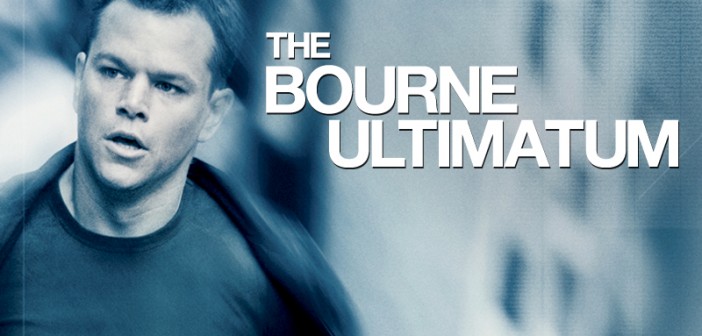If you closely watch Bourne Supremacy and Bourne Ultimatum, you’ll realize there is not much difference in the narrative progression except for the fact that while Bourne Supremacy is slightly passive and veers more towards ‘evade and escape’, Bourne Ultimatum is active in placing Jason Bourne in situations that involved protecting an important source of information. Case in mention the beginning of Bourne Supremacy where two characters crucial for exposing the covert operation ‘Treadstone’ are killed by Kirill, the Russian agent without any involvement of Bourne; in Bourne Ultimatum, Bourne has the power to save Simon Ross and Neil Daniels who again plan to make public a shocking revelation. While both situations are similar (exposing the truth), Bourne’s involvement in protecting the key witnesses makes Ultimatum more exciting.
The third installment in the spy conspiracy action thriller goes hard since by now, provided we have seen the previous two movies, we know what Bourne wants, what comes in the way and what he has to do. Its approach similar the recent movie Salt – both movies know how to place enough character development while keeping the action high, loud and rabid. Roger Ebert mentions in his review that we no longer care about his name or whatever, but we want him to beat ’em baddies up and win in the end, and I do agree with the statement. We have realized that the stakes get bigger each time and that Bourne learns something better each time, and all we care is how he gets to that point of ‘revelation’ – that happens only after the brawls, fights, shootouts, car chase etc.
Plot: After evading the Russian police and getting disturbing flashes of his past, Jason Bourne visits Marie’s brother to inform about Marie’s death. Meanwhile, another secret operation ‘Black briar’ is threatening to be exposed by a former member Neil Daniels and Guardian correspondent Simon Ross. The CIA and Black Briar’s director try to prevent them from leaking any information and rope in a reluctant Pam Landy, who becomes supportive of Bourne after their previous encounters. Bourne has to take on CIA and Black Briar team once again and unravel the grand conspiracy that has affected him for more than three years. Nicky Parsons, former Treadstone contact, also plays a major role in leading the narrative and also shedding a new, not-very-unexpected-considering-she-is-pretty-and-Damon-is-handsome romantic angle that may have existed in the past.
Key relations are given a push in Bourne Ultimatum; you can compare it with a ‘Progress’ rating – while in Bourne Supremacy, the overall progress was almost equal, the individual scores were low. For example, Jason’s relation with Nicky, Jason’s relation with Landy, Jason’s involvement in protecting characters etc. Jason and the equally perspicacious Landy collaborate and use the smartest strategies in setting things right, and boy oh boy its fun. Also smart was the screenwriter’s decision to place the previous resolution in the middle of the film to play with the narrative. So from the opening, we are in the center of action and are curious to know what’s happening. The shaky camera and editing does wonders this time, but we should also credit the background music that appended the cinematography in creating the tense mood. It isn’t perfect since there was a scene with Landy in the beginning of the film where I thought the camera just rammed like a speeding tempo into their faces in profile. Also, because of the volatile tempo, I couldn’t retain the film in my head some time after watching it so chances are that I would forget some of the plot and recurring characters in the next installment. But I realized that won’t happen since I heard Bourne Legacy is made without the character of Bourne himself.
Considering that, I regard Bourne Ultimatum a fitting conclusion to the trilogy and I hope Damon makes a comeback somehow in the future of Bourne. And he gets the smile back on his stoic face.

